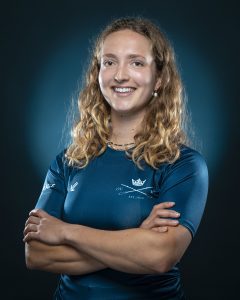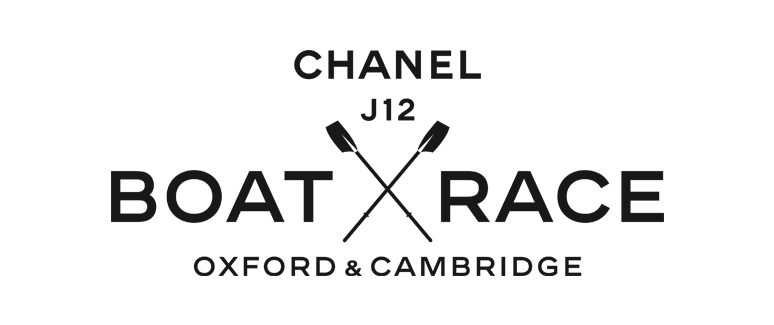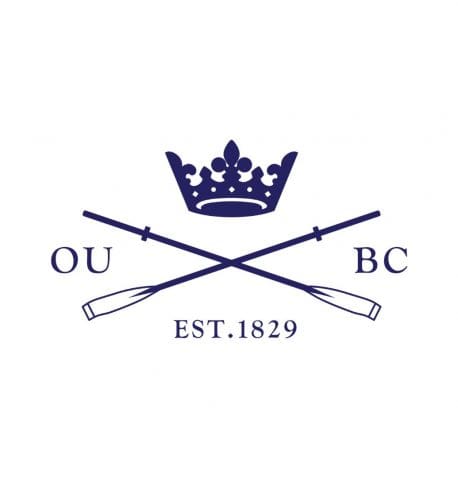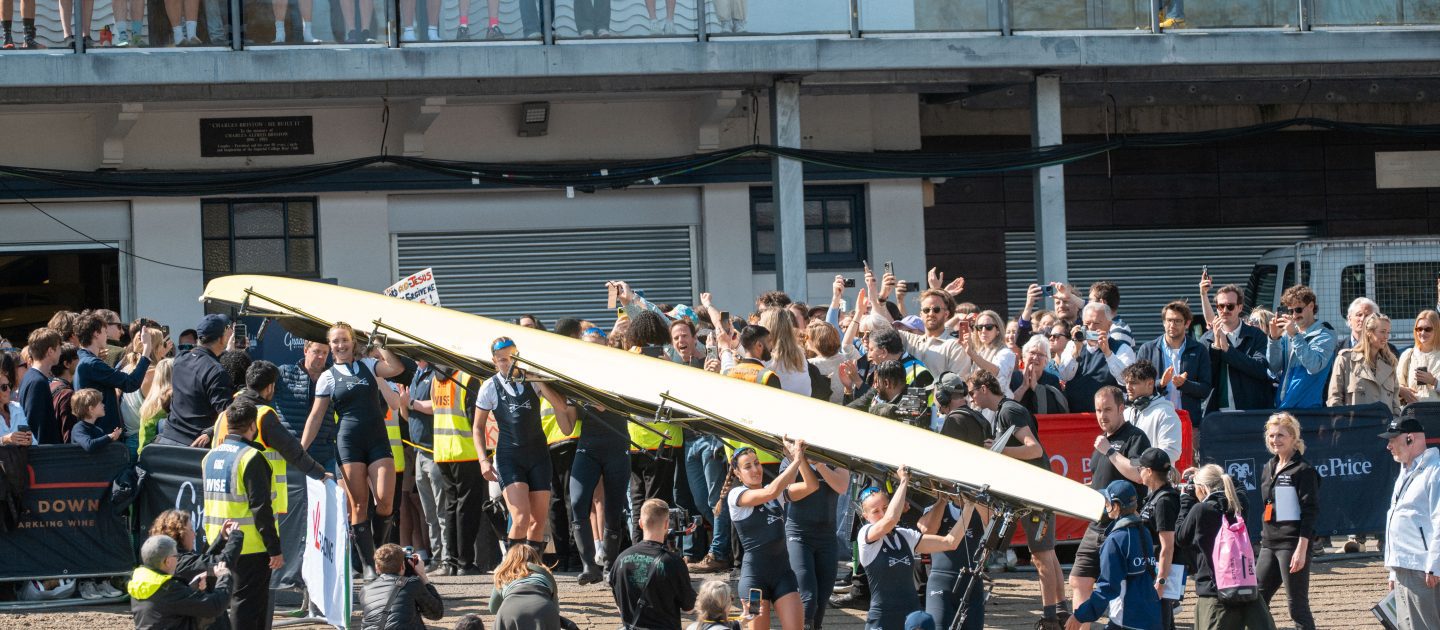Lilli Freischem rowed at 2 in the Oxford Women’s Blue Boat in The Boat Race 2025, following her stints in the Reserve Crew in 2023 and 2024.
How has life been since The Boat Race?
Life since The Boat Race has been filled with a mix of academic, rowing, and social activities. I travelled to Vienna just over a week after the race for a conference where I was presenting my research. That definitely was a quick turnaround, but it was great to catch up with collaborators and meet researchers from around the world working on related topics! I then raced at BUCS and at the Regatta Sveti Duje in Croatia, before settling back into the PhD plus rowing routine here in Oxford. With our slightly more flexible summer training programme, I’ve been able to spend some more time seeing friends which I’ve enjoyed a lot.
What are your strongest memories of the day?
 One of my favourite memories was the minibus drive down to the embankment. We had such a special crew this year and bonded especially well over our shared love for music. We had a playlist lined up for the day and spent the time waiting singing along to our favourite songs, getting energised and excited that Boat Race Day was finally here.
One of my favourite memories was the minibus drive down to the embankment. We had such a special crew this year and bonded especially well over our shared love for music. We had a playlist lined up for the day and spent the time waiting singing along to our favourite songs, getting energised and excited that Boat Race Day was finally here.
After the race, what I remember most was the overwhelming sense of camaraderie. First, among our squad as we regrouped by the finish line and later, with the wider OUBC community who welcomed us so warmly at the dinner that evening. There was a powerful sense of pride, connection, and shared experience that made the whole day unforgettable.
What are your summer rowing plans?
This summer, I’m competing at Henley Women’s Regatta and Henley Royal Regatta. I’ll be racing in an 8+ which is a mix of this year’s Blue Boat and Osiris crews, and it’s been great fun to bring this new lineup together, especially now that it’s getting sunnier.
Tell us about your PhD? Who is your funding body?
I am pursuing a PhD in atmospheric physics, focusing on improving the representation of clouds in climate models. I am part of the Doctoral Training Programme in Environmental Research, which is funded by the Natural Environment Research Council. The programme covers a broad range of research related to the environment, from climate and earth sciences to ecology, and thereby brings together PhD students researching topics like storms, volcanoes, coral reefs, or hyenas.
Describe the implications of your PhD to a layperson.
In my PhD, I am working towards improving the ability of climate models to accurately simulate clouds, focusing on high-resolution models. How clouds affect our climate – and how this changes in a warming world – is still not well understood: they remain the largest source of uncertainty in climate predictions. To address this, climate modellers around the world are developing higher-resolution models and improving their representation of cloud physics. This would reduce the uncertainty in climate simulations, so we could more confidently predict how much global temperatures will rise with a given amount of carbon dioxide emissions. It would also improve regional forecasts, for example, whether Oxfordshire will get more rain or become drier in the coming decades. Finally, because clouds and rainfall are closely tied to extreme weather events such as storms and flooding, reliable high-resolution simulations would allow us to predict if and where these events will become more frequent or more intense in the future and better prepare for them.
How did it feel to get back to the department after the intense winter and spring of a Boat Race campaign?
Although the Boat Race campaign is intense, the PhD is very much a year-round commitment, so I’ve been working in the department throughout the season. Our training schedule is designed to fit around work hours as best as possible, but on some days, you do have to leave a bit early for afternoon sessions and then catch up in the evenings or on weekends. The biggest change after the race has been the chance to spend more time with people in the department. I am really lucky to be part of such a supportive and social research community, and now that the schedule is a bit more flexible, it’s been great to join more of the events and just be around a bit more.
What’s your advice to anyone else trying to juggle a PhD with an elite sporting programme?
It’s definitely intense at times, but so worth it! It might sound cliché, but good time management – especially leading up to key events like The Boat Race – is absolutely essential. For example, I had a really big deadline the week of the boat race this year, so I had to plan ahead well to stay on top of everything as training demands increased. Another piece of advice is not to be afraid to ask for support when you need it. That might be from your teammates and coaches, or from your colleagues and supervisors.
I’ve been really lucky to have supervisors who are supportive of my rowing, which I know isn’t always the case. I do my best to avoid clashes between training and academic commitments, but during the final build-up to the race, I’ve had to ask to move meetings around or switch to online calls when we’re down in London to train on the Tideway – and my supervisors have been really accommodating. Having that kind of open communication and support makes a huge difference.



